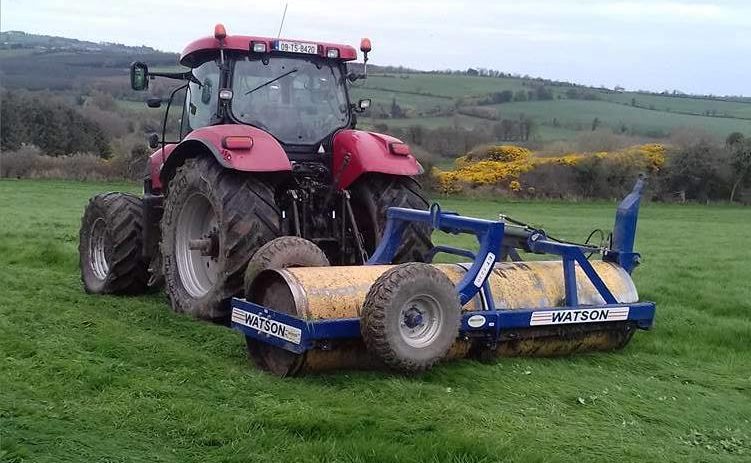Livestock farmers have been urged to roll their silage ground now by the Association of Farm and Forestry Contractors in Ireland (FCI).
It is important that farmers carry out this process after they have cleaned off any field hedgerow debris, in advance of the silage harvest, according to the FCI.
The FCI believes that rolling silage ground in April each year, depending on weather conditions, and ahead of significant grass growth, ensures that less soil is incorporated into the silage sward.
High levels of soil incorporated into the sward can can result in silage pit contamination, the FCI added.
These simple steps can also reduce costly damage to contractors’ modern and high-output silage harvesting machinery, an FCI statement read.
“Many silage fields now have obvious ruts following spring slurry applications or have suffered surface poaching due to grazing.
If these are not rolled to level the ground prior to silage harvesting, the contractor’s mower will be the only levelling mechanism that will meet these ruts.
“This will mean that the mower will be combining a field levelling or power harrowing function, along with a mowing function during the silage harvest.
“This results in significant soil contamination of silage in pits and bales and results in a costly reduction in silage quality,” the statement read.
The FCI supports Teagascs’ advice that where fields need to be rolled, the process should be carried out when the grass is short during an active growth period.
Soil conditions should be firm enough to avoid wheel damage to the field and pliable enough to allow both ‘levelling’ by the roller and the pressing down of moderate-sized stones, according to the FCI.
Don’t roll the grass after it starts to elongate as this can impair growth, it added.
Unsuspecting hazards
Members of the FCI are reporting significant activity on many GLAS farms, where trees and hedges are being cut in hedgerows and ditches.
It is important that these areas are tidied up afterwards and that no large timber branches remain – to be swamped and covered up by the fast-growing grass crops; ending up as unsuspecting hazards in the silage sward.
Farmers who have closed spring-grazed paddocks have been advised to ensure that they have also removed any metal electric fence posts, which can cause significant damage to mowers and chopper balers.
More baler knives and mower blades are replaced due to damage than due to regular wear and tear. This is due to the high levels of hazards found in many silage fields, the FCI reports.
